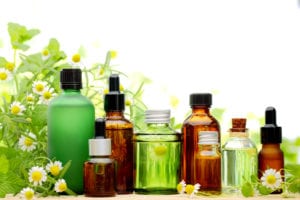Written by Joyce Smith, BS. Compared to standard nursing care, a combination of lavender, chamomile, and neroli was significantly more effective in reducing anxiety levels, improving sleep quality, and stabilizing blood pressure in the participating coronary artery disease patients who underwent coronary angiography and stent insertion.
 Korea’s population has witnessed, under the influence of the Western diet and lifestyle, a dramatic increase in obesity, diabetes, hypertension, hyperlipidemia and cardiovascular disease, increasing the mortality rate from 16.2 % in 1998 to 25.7% in 2008.1 Coronary angiography and angioplasty with stent insertions are commonplace procedures today 2; however, patients with coronary artery disease (CAD) and acute myocardial infarction (AMI) are often admitted to the intensive care unit (ICU) where severe anxiety coupled with noise, lights and crisis situations interfere with sleep and even worsen a patient health 3. Therefore, decreasing anxiety and stress and improving sleep quality are paramount to better recovery for these patients.
Korea’s population has witnessed, under the influence of the Western diet and lifestyle, a dramatic increase in obesity, diabetes, hypertension, hyperlipidemia and cardiovascular disease, increasing the mortality rate from 16.2 % in 1998 to 25.7% in 2008.1 Coronary angiography and angioplasty with stent insertions are commonplace procedures today 2; however, patients with coronary artery disease (CAD) and acute myocardial infarction (AMI) are often admitted to the intensive care unit (ICU) where severe anxiety coupled with noise, lights and crisis situations interfere with sleep and even worsen a patient health 3. Therefore, decreasing anxiety and stress and improving sleep quality are paramount to better recovery for these patients.
This study 4 aimed to investigate the effects of aromatherapy on anxiety, sleep, and blood pressure (BP) in patients with ischemic heart diseases who underwent stent insertion during coronary angiography and were admitted to the ICU in the Eulji University Hospital in Daejeon, Korea. Fifty- six patients were randomly allocated to either aromatherapy intervention consisting of blended lavender, roman chamomile, and neroli oils in a 6:2:0.5 ratio as prescribed by an aromatherapist or a nonequivalent control group which was “standard nursing care”. Participants inhaled, in 10 deep breaths, 2 drops of these oils placed on an aroma stone before and following angiography. The stone was then placed under the patient’s pillow until the following morning.
Baseline anxiety, BP, and sleep quality were assessed on day of admission and again before and after PCI. BP was measured every hour for 12 hours for a total of 13 measurements. Outcomes as anxiety, BP, and sleep quality were assessed at 9am on the day following PCI.
Results were as follows:
- After treatment there was a significant reduction in anxiety levels in the aromatherapy group compared to the nonequivalent control group (conventional nursing care).(t=5.99 P<0.001)
- After treatment, the aromatherapy group experienced no significant changes in sleep quality, whereas the control group had significantly worse sleep.(t=-3.65 P<0.001)
- The ANCOVA test revealed significant difference in both systolic (F=4.63, P=0.036) and diastolic (F=6.93, P=0.011) blood pressures between the two groups.
Participants experienced no headache or nausea following aromatherapy but did report a pleasant odor.
Aromatherapy reduced anxiety, increased sleep, and stabilized the blood pressure of patients undergoing cardiac stent insertion. Among the alternative therapies that have recently been introduced, aromatherapy is easy to use, fast-acting, and may be used as an “independent nursing intervention” for reducing anxiety levels and improving sleep quality of patients with coronary heart disease who require angiography and stent insertion, however, more research is warranted to make it an appropriate intervention in nursing practice.
Source: Cho, Mi-Yeon, Eun Sil Min, Myung-Haeng Hur, and Myeong Soo Lee. “Effects of aromatherapy on the anxiety, vital signs, and sleep quality of percutaneous coronary intervention patients in intensive care units.” Evidence-Based Complementary and Alternative Medicine 2013 (2013).
Copyright © 2013 Mi-Yeon Cho et al. This is an open access article distributed under the Creative Commons Attribution License, which permits unrestricted use, distribution, and reproduction in any medium, provided the original work is properly cited.
Click here to read the full text study.
Posted October 31, 2017.
Joyce Smith, BS, is a degreed laboratory technologist. She received her bachelor of arts with a major in Chemistry and a minor in Biology from the University of Saskatchewan and her internship through the University of Saskatchewan College of Medicine and the Royal University Hospital in Saskatoon, Saskatchewan. She currently resides in Bloomingdale, IL.
References:
- Korea S. Annual Report on the Cause of Death Statistics. Republic of Korea: Statistics Korea; 2008.
- Y. B. Park MYL, S. E. Park, M. A. Kim, D. W. Sohn, and B. H. Oh,. “Percutaneous transluminal coronary angioplasty( PTCA) in patients with coronary artery disease,” Korean Circulation Journal. 1992;22(6):912-921.
- Son YJ. The relationship between noise and sleep patterns in intensive care units. Journal of Korean Academy of Adult Nursing. 2001;13(2):209-222.
- Cho M-Y, Min ES, Hur M-H, Lee MS. Effects of aromatherapy on the anxiety, vital signs, and sleep quality of percutaneous coronary intervention patients in intensive care units. Evidence-Based Complementary and Alternative Medicine. 2013;2013.
